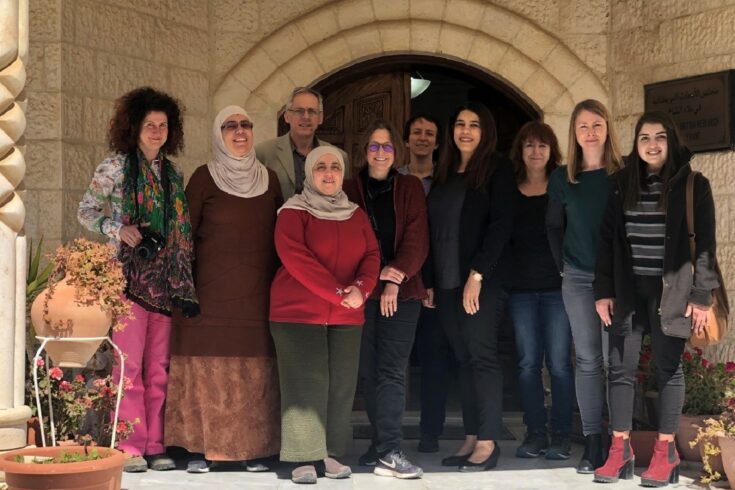A project using local heritage and archaeology to support sustainable development has won the Jordan country prize in the 2020 Newton Fund prize awards announced today.
Collaborating with a local museum, the winning project has developed an educational programme, a heritage trail, and a social enterprise to make heritage-based souvenirs and gifts. With the prize funding, it will expand this into a sustainable business to benefit the local community’s economy, as well as support social cohesion and wellbeing
Economics meets archaeology
The Newton-Khalidi funded project, called Our past, our future, all together in Faynan, worked in an area of Jordan that is economically poor but archaeologically rich. Although near the world-renowned site of Petra, Faynan largely misses out on the benefits of tourism. Tourism is critical to the region’s economic growth, but action is needed to ensure its benefits are received by local communities and the cultural and natural landscapes of Jordan are preserved.
The project team, jointly led by experts from the University of Reading and University of Petra, worked with the local community to build an understanding of Faynan’s ancient cultural heritage. They also enabled community members to tell their own more recent histories and stories and have these also represented within the museum.
The team combined with schools in the area, providing resources and training teachers, and created a new heritage trail to bring local archaeology to life both for students and tourists.
Heritage and new opportunities
Building on this work the University of Reading, with the Jordanian NGO Future Pioneers for Empowering Communities, set up a social enterprise and began training people to make handicraft products inspired by artefacts in the museum.
The Newton Fund prize, with its new funding, will now enable the team to expand the business – the Faynan Heritage Women’s Cooperative – and make it sustainable with a community café for visitors, a pottery workshop based on the local ceramics tradition, and an online store.
The expansion will help more local women gain new skills and generate sustainable income for their households and the community in the long term.
The AHRC’s Executive Chair, Professor Christopher Smith, said:
It’s brilliant to see the real difference this AHRC-supported joint UK-Jordan project based on Faynan’s rich archaeology and history is making to people’s lives and incomes. Winning the Newton Prize is a credit to the internationally collaborative team leading the project and will enable them to empower the local community and build a sustainable future.
Ali Hassasseen, Faynan Museum Curator, said:
This project emphasises the need of preserving the history and culture of Faynan through education and development for visitors, students, and the community. It has increased community belonging to the region and will enable it to become a tourist destination.
Further information
- The Newton Prize offers a total of £1m each year, divided among four winning projects that have previously been enabled by the Newton Fund. The purpose is to further help international research partners to tackle key global challenges such as human health, food security and climate change through science, research and innovation.
- The winning project for Jordan, Our past, our future, all together in Faynan, was co-led by Professor Steven Mithen, University of Reading and Dr Fatima Al-Nammari, University of Petra, Jordan. The delivery partners were the Arts and Humanities Research Council – part of UK Research and Innovation – and the Jordanian Department of Antiquities.
- Winning the Newton Fund prize will enable the team to begin a follow-on project, The Past Empowers the Future, to develop a sustainable women-led business for the local community.
- In addition to this award, a project on community energy supply, jointly delivered by the ESRC, has won the Chair’s Prize in the 2020 Newton Fund prize awards announced today.

